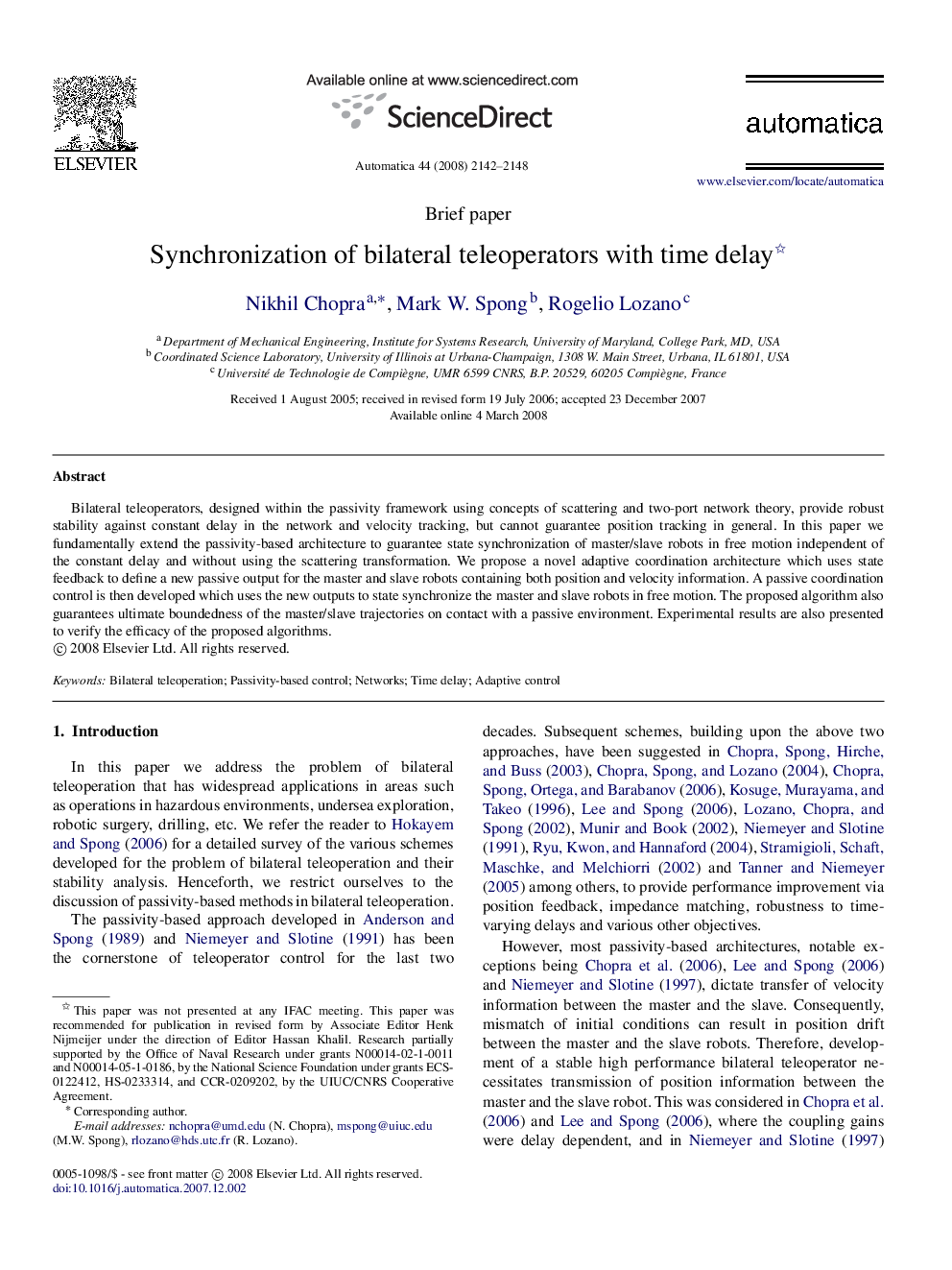| Article ID | Journal | Published Year | Pages | File Type |
|---|---|---|---|---|
| 698201 | Automatica | 2008 | 7 Pages |
Bilateral teleoperators, designed within the passivity framework using concepts of scattering and two-port network theory, provide robust stability against constant delay in the network and velocity tracking, but cannot guarantee position tracking in general. In this paper we fundamentally extend the passivity-based architecture to guarantee state synchronization of master/slave robots in free motion independent of the constant delay and without using the scattering transformation. We propose a novel adaptive coordination architecture which uses state feedback to define a new passive output for the master and slave robots containing both position and velocity information. A passive coordination control is then developed which uses the new outputs to state synchronize the master and slave robots in free motion. The proposed algorithm also guarantees ultimate boundedness of the master/slave trajectories on contact with a passive environment. Experimental results are also presented to verify the efficacy of the proposed algorithms.
